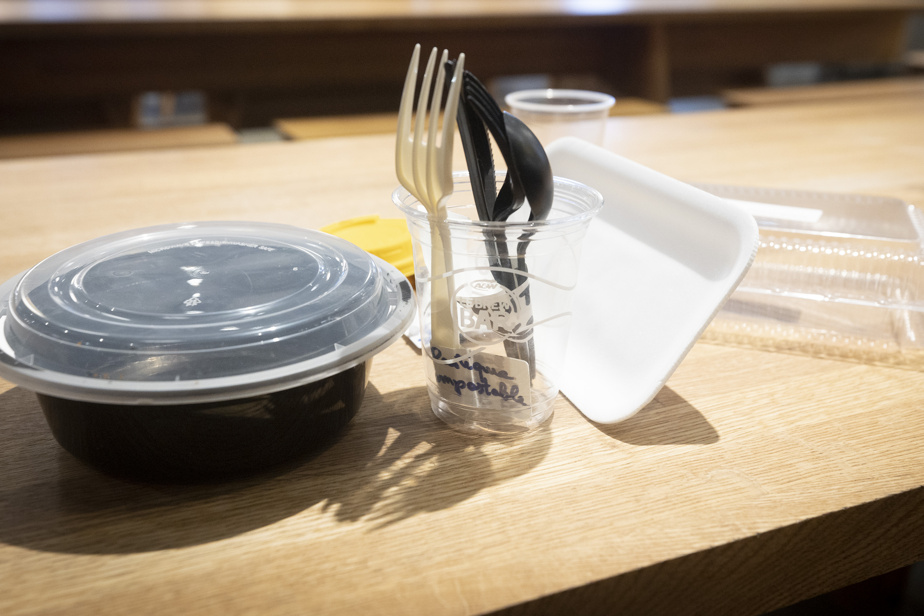Several plastic objects will be banned from 8,400 Montreal restaurants as of March 28, but others will remain permitted, with the entry into force of a regulation aimed at reducing the use of single-use containers and utensils and encourage reuse.
“The action we are taking is courageous and will require adaptation and a change of habits, as we know, for merchants and for citizens, but it is absolutely necessary to do it because the main landfill of the Montreal region, that of Lachenaie, will reach its full capacity in 2029,” underlines Marie-Andrée Mauger, responsible for the environment on the executive committee of the City of Montreal.
The message people need to take home, according to the City: carry your reusable cup and bottle, keep utensils at your desk, forget the straws unless it’s essential.
“Recycling is good, but reducing at source is even better. We must first avoid the problem rather than manage it,” notes Karel Ménard, director of the Quebec Common Front for ecological waste management.
“Single use should not exist. It’s abnormal that today we can have an object only a few seconds in our hands and throw it away, it’s a shameless waste. »
According to him, consumers should be aware of the limits of recycling: plastic products put in recycling bins in public places usually end up in landfills, because they are too contaminated with other materials.
The new bylaw is somewhat complex, as it allows certain plastic objects, sometimes under certain circumstances:
Pre-packaged food outside the establishment is not covered by the regulation, which also does not apply to non-profit food aid organizations, nor to establishments that only offer a delivery service. at home, such as caterers.
The municipal inspectors responsible for compliance with the regulation will show tolerance at the start of its implementation, assures Marie-Andrée Mauger, in particular to allow traders to sell their inventory. Then, fines varying between $400 and $4000 can be distributed.
Consumers could perceive a slight impact on prices, observes Martin Vézina, vice-president of public affairs for the Association restauration Québec (ARQ), because replacement products are sometimes a little more expensive.
“But vendors have already stopped offering certain products, like Styrofoam trays, because there’s also federal regulation coming up,” he notes.
Antoine Meunier, owner of the Kamé Snack Bar, located in the Le Central food court in downtown Montreal, had not yet found new glasses to serve his smoothies, but he is looking into the matter, he says. “For straws, I’ll try agave ones, which are stronger than cardboard, if they work with my products,” he explains.
At the Chatime bubble tea counter in Chinatown, it is already planned that glasses, straws and cardboard lids will replace plastic as of next week. “We also have cardboard boxes and trays, we are ready for change,” says counter manager Ngoc Anh Tran.
Elsewhere, like at the Bell Centre, we opt for aluminum glasses, a recyclable product, reveals Martin Boily, vice-president of sales and marketing for Emballages Carrousel, which supplies containers to several restaurants in Montreal.
Others, like music festivals, are considering providing reusable cups instead, with on-site deposit and wash stations, Boily adds. “We feel that there is an increase in demand for dishwashers and reusable tableware,” he says, noting that this model has already been adopted by cafes for a few years with the La Tasse network.
The City has provided financial support of nearly $100,000 for the development of a network of reusable containers for take-out food orders, in collaboration with the Table de concertation du reusable en restauration, and financial support of $82,000 $ to La Vague, manager of the La Tasse network, to support merchants in adopting reusable alternatives to single-use plastic.

